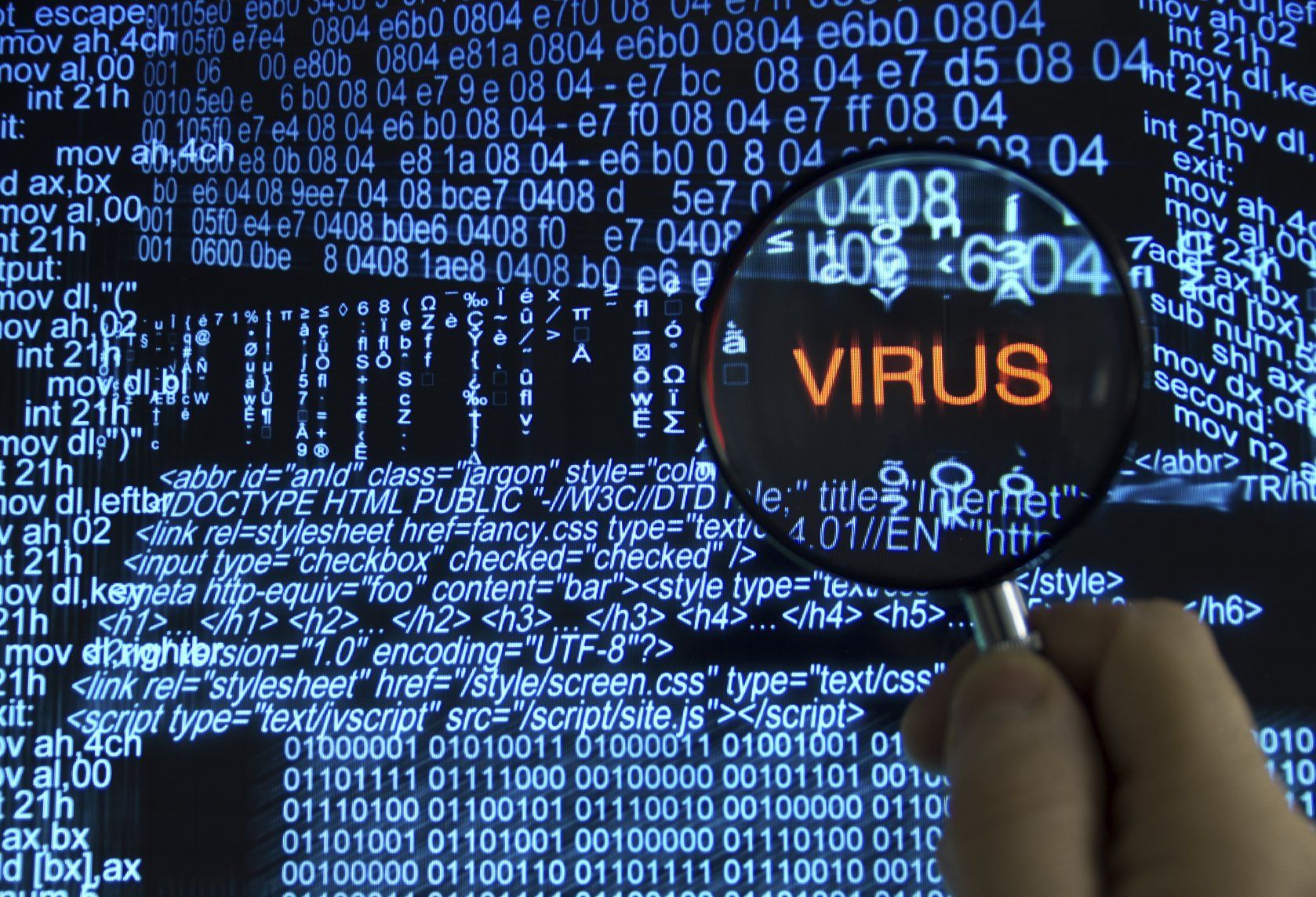Government policies and business operating plans will have to adjust to the new reality, recognizing that the pure globalization model with its failed and broken supply-chains puts companies, and people, at risk. It places profits above public safety, labor standards, living wages, citizen welfare and health, environmental standards, and the health of the Earth, which can now be seen in photographs of clear skies and unpolluted air.
The pandemic and the Overton window
The pandemic and the Overton window
By Scott Champion

The ‘Overton window’ is a term describing the ideas that define the spectrum of acceptable government policies. If politicians are to succeed, their policies must remain within this range of public acceptance. In order for politicians to expand their policy reach, they must either develop new platforms within the existing Overton or the public must call for new policies with a voice loud enough for politicians to hear.
In his writings Benjamin Creme maintained that one day humanity would be brought face to face with a profound wilderness experience of significant depth and impact. “The wilderness experience, particularly for the West, is the acceptance of a simpler way of life, so that all people everywhere can live”, Creme said.
“The wilderness experience, particularly for the West, is the acceptance of a simpler way of life, so that all people everywhere can live”, Creme said.
Arising out of this experience, the world’s governments would be put to the test to prioritize and meet the true needs of their people. While few expected a pandemic as the initiating cause of this wilderness experience, the economic collapse springing from the pandemic, and the response of the world’s governments, which has followed the crisis to date, is in line with Creme’s writings and lectures.
In April 2020, the Democratic Speaker of the US House of Representatives, Nancy Pelosi, provided a glimpse into a fairer economic model for the people of the US by saying that Universal Basic Income might be worthy of consideration in the current economic environment. Speaker Pelosi is the most senior US politician ever to publicly voice such a revolutionary change in the US economic model. Prior to this, US presidential candidate Senator Bernie Sanders pushed numerous progressive, socialist ideas into the thinking process of American voters. These US-centric ideas parallel the Conservative government in the UK rushing to hand out money to businesses to cover 80 per cent of employee wages up to a sizable limit, taking a step that a Labour government could not even have imagined only a few months before.
These unprecedented proposals and steps into socialism are due, of course, to the economic misery wrought by the Covid19 pandemic. This has resulted in deep, structural damage to the global economy within a tightly compressed time frame (10 weeks), rivaling the losses in employment and the decline in economic activity that occurred over 10 years during the 1930s Great Depression. The depth and speed of “the economic damage is only just beginning,” according to Rabobank’s insightful economic analyst Michael Every, “and it is terrifying.”
Actions taken by governments to make capital owners whole in times of crisis have a significant history in the developed world. Equity holders are repeatedly bailed out through liquidity schemes orchestrated by global central banks whose actions, in times of economic crisis, routinely prioritize stock, bond, and real-estate markets above and before people. Many trillions of dollars have been made available in this century alone to support asset markets in the US, EU, Japan, and throughout the developed world.
In recent years China has joined in this asset levitation as well. These same countries occasionally provide limited amounts to the public if the crisis is seen to impact employment in a significant manner that would lead to mortgage, auto, and credit card defaults and take cash flow away from wealth holders. As many commentators have remarked, it is a global system where losses are socialized and profits privatized.
Since the 2007-09 Great Financial Crisis, the capital markets have, at times, ceased to be a “casino” system, as equity bets in the aggregate, during crises, are significantly covered by central banks at the expense of taxpayers, deficits, and future currency values. There still may be a casino nature to the success of individual companies but in crisis times the well-managed and poorly managed companies tend to be bailed out irrespective of management performance and competence. Those managements that borrowed heavily to engage in stock buybacks over the past 10 years placed their companies at great risk. Corporations who behaved this way, such as Boeing, are the recipients of substantial public resistance to the idea of using taxpayer money to bail out greedy, incompetent, self-centered management.
In their devotion to maximizing shareholder value, while simultaneously maximizing the value of their own stock options, management off-shored every possible expense and resource in order to squeeze the last dollar into reported earnings. It was the result of this cost squeeze throughout the corporate universe that such critical resources as medical tests, chemical reagents, masks, gowns, gloves, eye-protection, and hand sanitizer were nowhere to be found in domestic production. In most industrialized countries, virtually everything had been outsourced to the lowest cost producer in order to save pennies – but pennies multiplied over millions of items.
In the short space of two months, what became essential to governments, employers, and workers took on an entirely new meaning. Healthcare employees who work with Covid-19 patients became the most significant front line in the world in an unmatched global realization of what was suddenly most important – staying alive. The checkout person at the grocery store was thrust into this new battle, upgraded to essential status overnight, but was left without the needed protections while having to stand face to face with potentially infected customers and co-workers. These workers earn close to minimum wage, without paid sick leave, and have at best questionable and expensive health insurance.
Few essential workers, including frontline medical workers, could get tested for the Covid-19 virus. But news stories were full of professional sports teams having been tested, entertainment stars posting their results on online news and social media, and wealthy people and their entire neighborhoods having no trouble getting tested through private concierge medical services. Importantly, this state of affairs has not gone unnoticed by the newly valued essential workers. On May Day 2020, in a call for worker justice, a coalition of essential workers for Amazon, Instacart, Whole Foods (owned by Amazon), Walmart, Target, Shipt and FedEx, staged a walkout in order to demand higher wages, sick leave, and safe working conditions.
As a result of the pandemic, many people are awakening to a new reality. They are developing a clearer view of the situation and beginning to take a stand over the obvious unfairness they have experienced and which they see is putting their families at risk.
As a result of being thrust onto the front lines of a pandemic, it has been easier perhaps for essential US workers to quickly realize the unfairness of capitalism than it had been for them to overcome an entire life’s conditioning about the sanctity of market forces, including ideas of how a successful economic system must operate.
This new-found sense of self-worth is possible because of the release of past conditioning as their immediate, raw, brutal, pandemic experience is outside their previous experience and conditioning. They see it is not fair. They have no reason to accept that it was their fault, or to just accept it as it is without complaint, and they see more clearly how the wealthy benefit at their expense even while those same workers’ lives are placed at real risk. It appears likely that mental conditioning can be more easily overcome when faced with an existential threat – the possibility of dying.
Going forward, essential workers are unlikely to accept their lot without a substantial rethink, as they’ve experienced firsthand that they matter and that they matter a great deal. The same holds true of those who were required to shelter in place, to quarantine, for the greater good. They know this is not their fault, that they should not be evicted or have their home foreclosed upon or their car repossessed or forced into bankruptcy due to following what was necessary and required. As this idea dawns a space may be created that can tear down mental conditioning. “I’m essential.” “I did the highest thing so that others might live.” “Why should my family suffer because of that?”
At the present time it remains to be seen if the money printing techniques used by central banks during the 1987 stock-market crash, the bursting of the 2000 dot-com bubble, and the Great Financial Crisis of 2007- 09 will work once again in today’s highly interconnected and heavily indebted world. The ongoing Covid-19 pandemic is quickly demonstrating that many aspects of life prepandemic may take a long time to return to normal. Numerous economic analysts, whose careers have been devoted to understanding the global economy, have said that they do not expect many industries to be able to return to normal in less than two to eight years, depending on the industry. The Chief Investment Officer of JP Morgan Asset Management stated that it will take at least 12 years for employment to return to recent heights. Financier and hedge-fund leader George Soros, at 89 years of age, stated that this is the crisis of his lifetime.
Government policies and business operating plans will have to adjust to the new reality, recognizing that the pure globalization model with its failed and broken supply-chains puts companies, and people, at risk. It places profits above public safety, labor standards, living wages, citizen welfare and health, environmental standards, and the health of the Earth, which can now be seen in photographs of clear skies and unpolluted air.
Businesses, too, will need to rethink if maximizing profits is worth risking their future viability as they struggle to survive in these new times. Those without the ability to raise money in capital markets (stock and bond markets) will be under extreme pressure unless government bailouts are effective. Few market analysts expect less than significant economic difficulty before we can put it all behind us, and many of these analysts expect this downturn to rival or exceed the difficulties faced in the 1930s Great Depression. By many metrics we are already in a new Great Depression.
Global sales, profits, employment, capital investment, and tax revenue will remain under pressure well into the future. Formerly profitable businesses, such as aircraft manufacturing, airlines, hotels, lodging, auto makers, car rental, transportation, casinos, restaurants, and many others, will be forced to shrink their operations. Employment will suffer far longer than usual and increase the time spent in global recession/depression.
Essential businesses will be confronted with demands for higher wages, paid time off, and affordable healthcare, and this will occur against the backdrop of record unemployment, which may lead to a combustible confrontation between owners and labor. Business profit margins will be under pressure as a result of the pandemic, and supply chains will be brought closer to home, with less dependency on a single production country such as China. Businesses will spread their supply risk exposure across multiple platforms to insure against reliance on a single sourced provider. In the current pandemic there are no easy solutions and life will be altered far into the future, irrespective of how successful the first economic openings will be.
Is there anything that could soften the economic depression quickly? A widely available, safe and effective treatment regimen, or a successful vaccine widely administered, are the best opportunities to avoid a prolonged global depression. But even if one or both of these positive events are on the immediate horizon, the economic damage would still be beyond all past recessions. The recent peak in global GDP, adjusted for inflation going forward, will be difficult to achieve in the short to intermediate term due to the unprecedented destruction of both supply and demand throughout the world economy.
Developing economies are in for a particularly difficult time due to their reliance on the US dollar as well as their dependency on a robust and fully functioning Eurodollar market (Eurodollars are US dollars held outside the US banking system). With the steep drop in total economic activity, the supply of US dollars is sharply diminished globally, placing intense pressure on developing economies at the same time that commodity prices slump.
This double blow is the reason the International Monetary Fund is seeking to increase its lending capacity to $1 trillion to aid developing economies as the Fund hopes to expand its Special Drawing Rights. But President Trump’s administration is resisting and has so far opposed this plan. If this continues, it could be left to the US Federal Reserve and US Treasury to underwrite an almost unlimited amount of foreign government and foreign corporate US dollar debt, credit lines, and bank letters of credit, to stave off global collapse.
This unfortunate state of affairs would put the US in control of global economic activity far beyond its present influence, choosing which countries and corporations get funded. In this scenario the US government would get to pick international winners and losers. Countries such as China and Russia, with their sizable economies, would not wish to find themselves in the same boat as Iran, Venezuela or North Korea. For Russia, already under US sanctions, this idea must be particularly unappealing. It is an untenable situation for these politically and economically powerful countries possessing advanced military capabilities, and one can only imagine the range of policy options Russia and China might consider if this increased US dominance became reality. In short, problems coming to a head in the Eurodollar market over the last few quarters are sowing the seeds of another global crisis.
But world governments are still faced with the pandemic and have no idea how to proceed. They are lost, and co-operation is nowhere to be seen. The pressure to reopen and save economies is high and may lead to a prolonged series of openings and closings in response to new Covid-19 outbreaks. Social distancing has a negative effect on millions of business models, large and small. Regardless of how these first opening steps go, life may be disrupted for a very long time.
At the end of April 2020, JP Morgan Chase (JPM) released a report advising clients to ignore the message stock markets are sending and that the situation in the current pandemic economy is as bad as it appears to be. As the largest US bank JPM has the front-row seat to the economy and has already taken significant steps to protect itself by cutting off credit wherever it can, and changing its focus to originating loans that carry government backing while shunning most others. As developed world economies run on credit/debt, this is a bad sign. JPM commented, “These data are ugly, and are set to get much worse.”
The acknowledgement by wealth-holders of capitalism’s unfairness, its sharply increasing inequalities, and the realization by workers of their newly found value, provides the intellectual underpinning to politicians interested in effective change, and it provides workers with a fervent, powerful voice to demand a new approach to the existing relationship between land, labor and capital.
The Covid-19 pandemic has provided a sharp and dramatic adjustment to the Overton window. In less than two months the circumstances that influence public discourse have been radically altered. This is a unique moment in history and the window can open wide at the present time if people demand substantive change and are willing to hold politicians to account. If the public leads, politicians will propose policies thought to be unobtainable only a few months ago.
Powerful US politicians are articulating policies that until recently had been considered too extreme and radical, with no chance of implementation. But suddenly these policies are not only becoming acceptable within the public mind but are increasingly seen as necessary. The Covid-19 virus has affected the world deeply, and as a result many now recognize the need to adjust our political, economic and social systems. No country exemplifies this need as does the US, which collapsed under pandemic mismanagement, gutted by free-market ideology and the push for profit maximization at all costs. Now those costs are hitting home.
The Overton window has moved, and the voice of the people has never been as potentially influential as it could be now in shaping the policies that can take us out of economic depression. It is up to the public to describe that future, insist on it, vote for it, and allow us to leave behind a system that is little more than economic Darwinism, lacking as it does, thoughtfulness, vision, compassion and conscience.
Author’s note: The Overton window applies equally to the worldwide anti-racism demonstrations occurring in sympathy with the killing of George Floyd and the Black Lives Matter protests. In an astonishingly short time frame the Overton window is being forced open under intense public pressure on local, state and national political bodies, driving them to enact legislation to rein in police forces as they have become increasingly aggressive and militarized.






